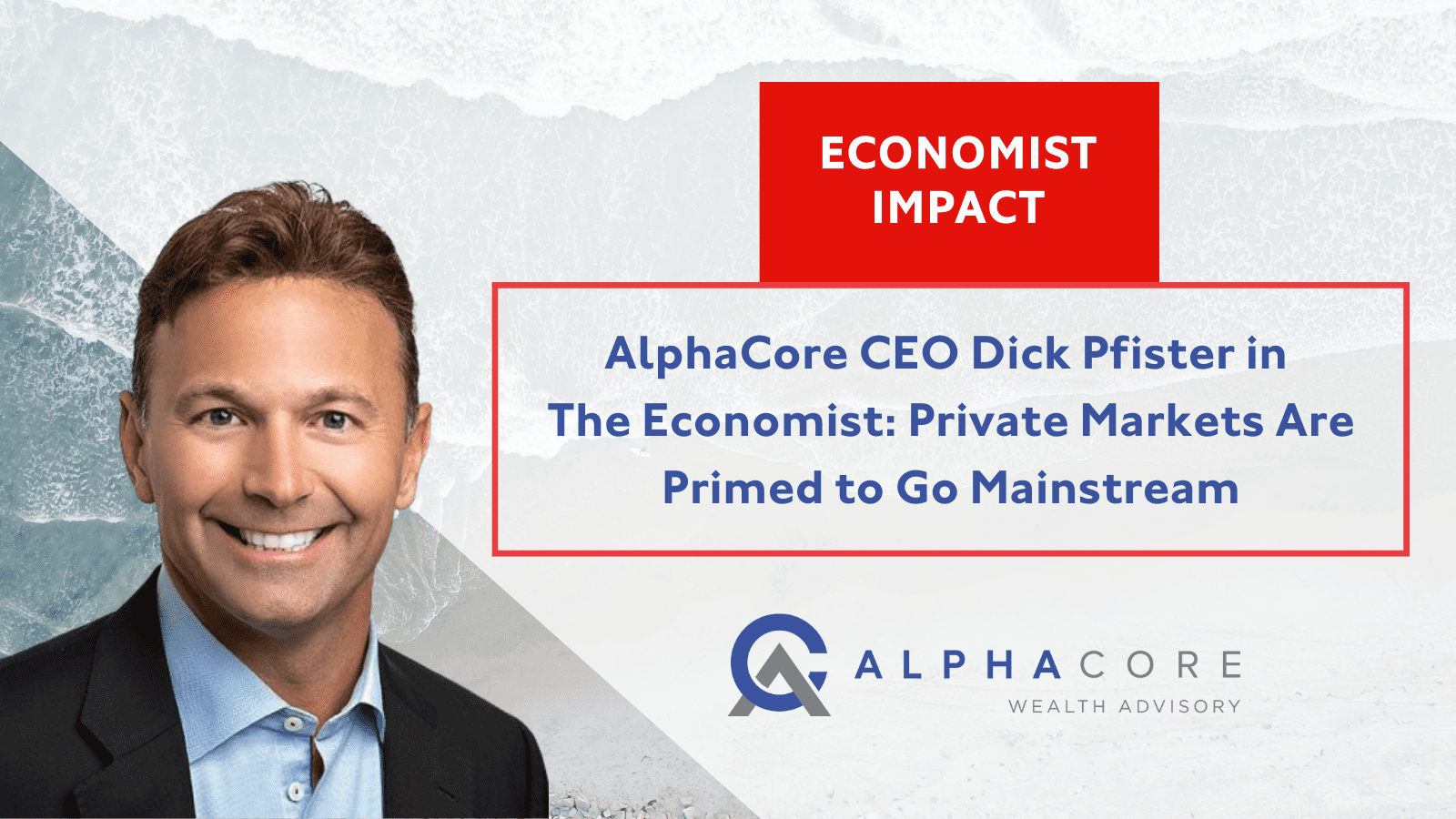As more individual investors search for new ways to achieve diversification in our volatile market environment, alternative investing, specifically in private equity, is becoming an essential part of portfolio allocation. According to The Economist, in the span of just five years, global private equity assets under management more than doubled to $5.3 trillion in 2020[1]. The number of individual investors in private equity also more than doubled in that period.
To help investors learn more about the once-inaccessible private markets, The Economist turned to AlphaCore Founder and CEO Dick Pfister, CAIA, for insight.
One of the reasons why an increasing number of investors are allocating to private equity investments is the improved access to alternatives thanks to today’s digital technology. For example, the fintech platform iCapital is able to connect advisors, banks and wealth managers with more than 1,000 funds at investment sizes suitable for individual investors.
“Historically, if you wanted to invest in a private equity limited partnership or a hedge fund, it would have been so cumbersome to put in your portfolio,” explains Pfister. “The iCapital platform has streamlined the plumbing of logistics and operations.”
While enhanced ease of use is one factor driving investors toward private equity, returns are another. According to The Economist, private equity has outperformed the public markets over the past 20 years, and these returns have come with less risk[2].
Looking forward, Pfister tells the publication that the withdrawal of quantitative easing and higher interest rates should make global economic conditions even more favorable for active strategies, which have taken a back seat to passive strategies since 2008.
Click here to read the entire article in The Economist.
[1] The Future is Private, Unlocking the Art of Private Equity in Wealth Management”, Boston Consulting Group.
[2] “Long-Term Private Equity Performance: 2000 to 2021”, Cliffwater, June 2022.

